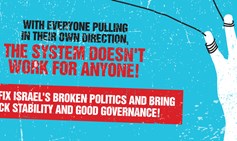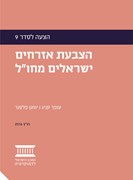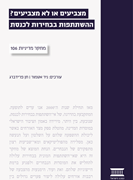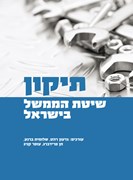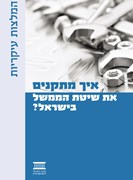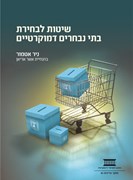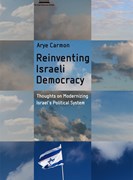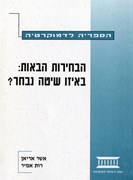

Publications Regarding Electoral Reform
Articles

Could Sderot Have the Same Standing as Tel Aviv? Perhaps If We Reform the Electoral System
Written By: Dr. Assaf Shapira, Prof. Gideon Rahat
Israel is the only OECD member that has neither regional elections nor a personal element in the electoral system. This is not simply a technical issue but has far-reaching implications relating to the quality of representation and the obligation elected officials have toward their voters.

After the judicial reform, the electoral process is next
Written By: Prof. Ofer Kenig
When there are no restraints on what the government can do, the road will be open to “adjustments” (tricks) and “reforms” (schemes and conspiracies) in the electoral process.
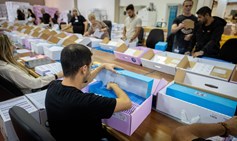
Israel's Electoral System Prevents Accountable Governance
Written By: Dr. Assaf Shapira, Yaniv Roznai
In the system of democracy currently in place in Israel, Knesset members represent the public. This is indisputable. However, the ties between the public and its representatives are very weak.

Political Reform: The Imperative of the Hour
Written By: Dr. Assaf Shapira
Critical reforms are necessary to ensure the quality and future of Israeli democracy
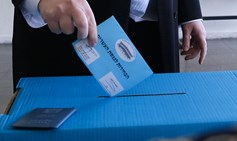
30% of the Public Predicts a Fourth Election
With only a few days to the Elections, the February Israeli Voice Index finds that Jewish Israelis are Paying Less Attention, while a Majority of Arab Israelis are Following with the Same or Increased Interest. 30% of the Public Predicts a Fourth Election.

Third Time's a Charm?
Written By: Yohanan Plesner
With two weeks to go, Yohanan Plesner presents the key issues to look out for in Israel's unprecedented third election and what – if anything – will determine if a stable government will finally be formed.
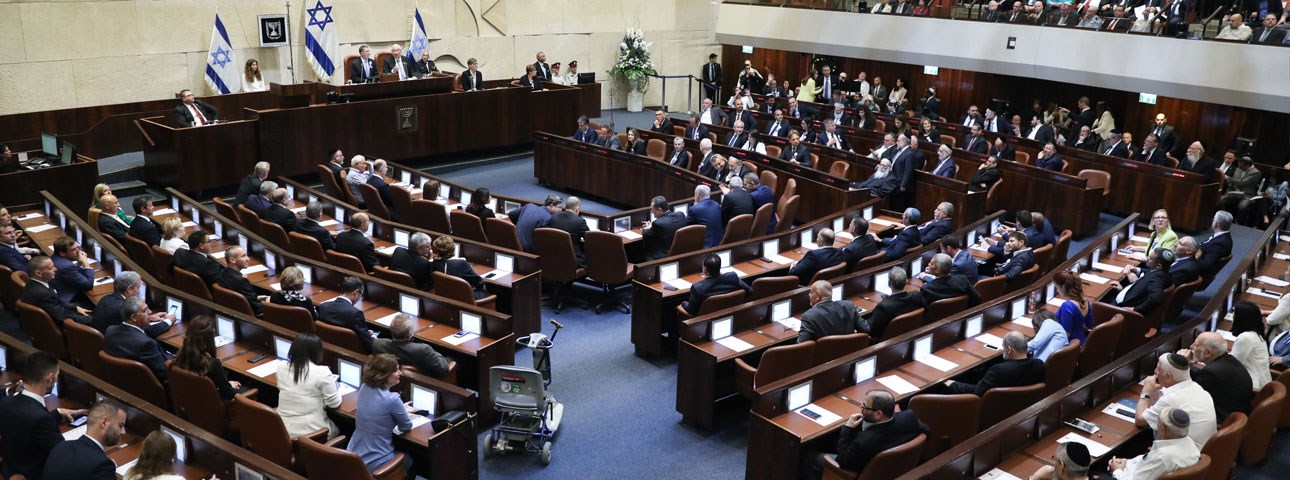
The State of the Highly Personalized Israeli Democracy
Written By: Prof. Gideon Rahat
At this writing, Israel seems to be headed towards its third elections within a year. Israel has been governed for almost a year by a caretaker government, and no one can be sure that the next elections will resolve the stalemate. While this state of affairs may fulfill the dreams of libertarians or anarchists, for most others – it looks more like a nightmare.
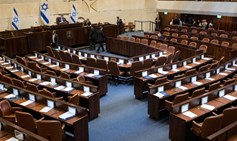
On the Knesset's Dissolution and Third Elections
Israel finds itself in yet another unprecedented moment and has officially entered the campaign period for a third national elections in less than 12 months. How can we prevent this from happening again in the future?
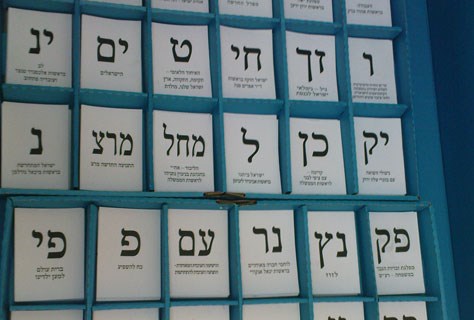
Is Third Time a Charm?
Written By: Prof. Ofer Kenig
Israel is gearing up for its third national elections in less than a year - how does this compare to other democracies around the world?
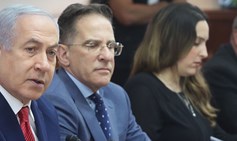
Remove Netanyahu Right Now on Grounds of Temporary Incapacity
Written By: Prof. Yuval Shany
There's an unacceptable, extreme conflict of interest between Netanyahu the accused and Netanyahu, head of the executive branch

We Need to Talk about Cameras Right Now
Written By: Dr. Tehilla Shwartz Altshuler
They are everywhere, argued the PM after pushing to install them in polling stations. He's right, and that's exactly the problem
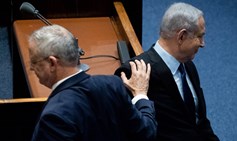
Can a Minority Government End the Deadlock in Israel?
Written By: Dr. Assaf Shapira
Assaf Shapira argues that if the choice is between a minority government and another round of elections, the former is the better option.
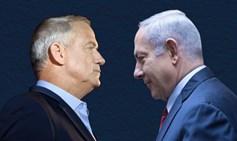
Benjamin Netanyahu Fails to Form a Government – What Happens Next?
Written By: Yohanan Plesner
While we cannot know for sure if Benny Gantz will succeed where Benjamin Netanyahu has failed, we can state with certainty that our political system of the past year has been characterized by deadlock, and this is not expected to end in the near future.
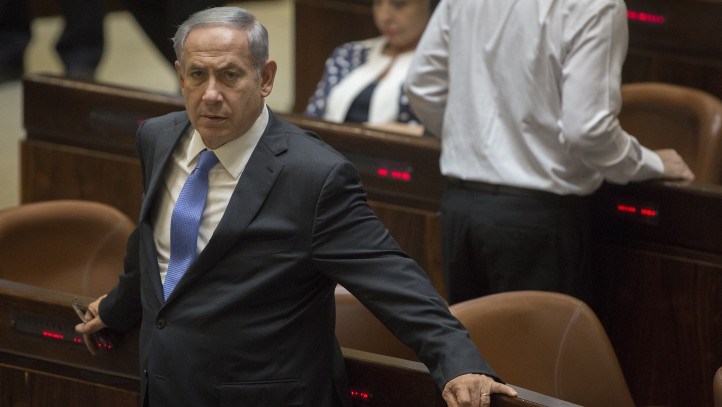
Majority of Israelis Think Netanyahu Should Resign
After Netanyahu returns mandate to the President: Most Israelis support a system based on 2 large parties and a Netanyahu-Gantz rotation for the position of prime minister. 53.5% of Israelis think Netanyahu should resign immediately, while almost half (47%) of right-wing voters believe that Netanyahu should resign if indicted.

Did the September Election Solve Anything?
Written By: Dr. William Cubbison
The failure to form a government in April and the subsequent second election surprised Israelis. Now, they might need to go to the polls for a third election in early 2020. What do Israelis think about this unprecedented political reality?
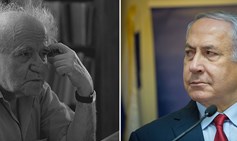
BB > BG
Written By: Prof. Ofer Kenig
On July 19th 2019, Netanyahu’s total days in office as Israel’s prime minister equals Ben-Gurion’s and on July 20th he will hold the title of the Israeli prime minister with the longest term in office. This also will make him the third most 'veteran' leader among the OECD countries.

The Absurdity of Campaign Financing in Israel
Written By: Dr. Assaf Shapira
Why should parties be allowed to use state funding for ongoing expenses to cover the debts accrued during political campaigns?
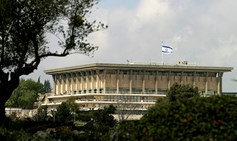
Opinion: Repealing the Law to Dissolve the Knesset
Written By: Prof. Yuval Shany, Dr. Amir Fuchs, Dr. Guy Lurie, Prof. Ofer Kenig
An opinion submitted today (June 26th) to MKs, the Attorney General, and the Knesset Legal Advisor on behalf of the Israel Democracy Institute, opposes the proposal to repeal the law to dissolve the Knesset and seeks to take the proposal off the agenda.

For These Do-Over Elections, We are all Smarter
Written By: Prof. Amichai Cohen
Another Election? It Has its Pluses for the Public and for Democracy. Voters got to see how parties behaved after elections, and parties now know the real risk of a hardline negotiation stance.
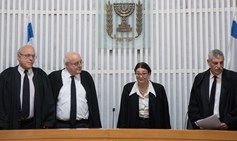
A Test of Reasonableness
Written By: Dr. Amir Fuchs
The bizarre constitutional situation in which we now find ourselves raises a great many legal questions, not all of which have simple answers. Does the law allow the prime minister to fire all the government’s ministers? Can he serve as “the government” by himself?
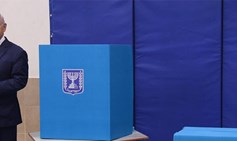
How to End Israel’s Political Impasse
Written By: Yohanan Plesner
Benjamin Netanyahu couldn’t form a government, because the electoral system is dysfunctional. The country needs to enact two simple reforms, or it will face perpetual stalemate.
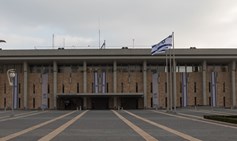
Electoral Reform: Hope for Tomorrow
Written By: Yohanan Plesner
The good news is that according to surveys that we published at the Israel Democracy Institute, there is widespread consensus among Israelis on many of the most significant issues our country faces
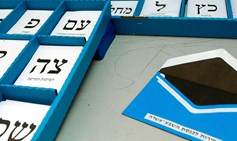
Israel Should Adopt Open-Primaries System on Election Day
The Israel Democracy Institute, the Kohelet Forum, Israel 2050, The National Union of Israeli Students, and the Israel Leadership Forum have joined together to call for the implementation of a "primaries on Election Day" system in Israel. This approach is often referred to among academics as the "semi-open ballot"
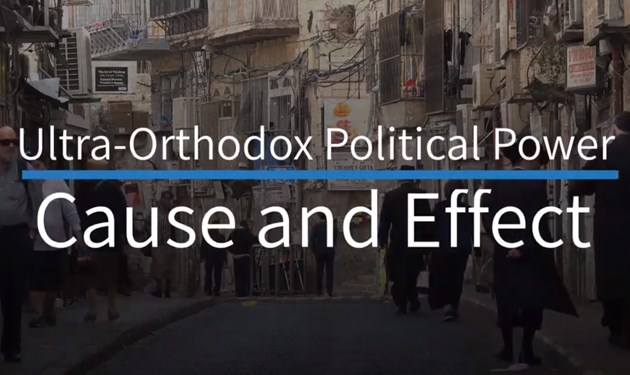
Are Ultra-Orthodox Parties Risking Losing the Allegiance of their Voters?
Written By: Dr. Gilad Malach
For many years the ultra-Orthodox were perceived as “captive voters” who would always comply with their rabbis’ instructions to cast their ballot for ultra-Orthodox parties. In today’s new reality such directives are no longer enough
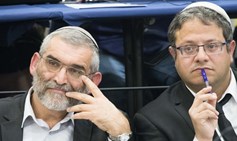
Take Great Care When You Limit Freedom of Expression
Written By: Prof. Yedidia Z. Stern
Instead of training rhetorical cannons on the court, which is doing its job in a chaotic situation, the legislature should delete Section 7A from the Basic Law. Let everyone run for the Knesset, and let those who violate criminal laws bear the consequences of their actions

Time to Reform the Electoral Process
Written By: Prof. Gideon Rahat
What reforms are necessary to repair the electoral process to improve governance? Prof. Gideon Rahat sits down to discuss the upcoming elections with David Schulberg from the Israel Connexion in Australia
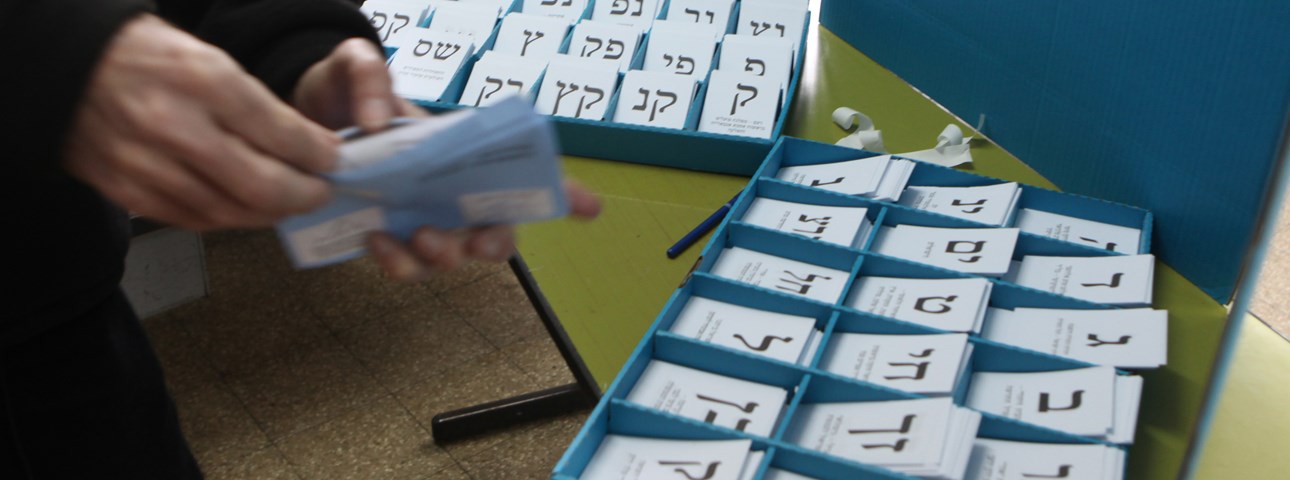
Will Your Vote Count?
Written By: Dr. William Cubbison
To what degree does the Israeli public have faith in the integrity of the elections, to what extent does it believe that the April 9th elections will accurately reflect its views and how does Israel measure against other democracies?

Alliance of Interests
Written By: Dr. Assaf Shapira
The alliances and fragmentation has far-reaching consequences for the work of the Knesset and the government
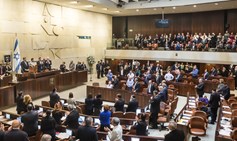
It’s time to change how we select Knesset candidates
Written By: Prof. Gideon Rahat
Primaries often don't reflect the true will of actual party supporters -- voters should weigh in on Election Day
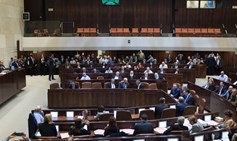
Time to Vote for a Bloc!
Written By: Prof. Yedidia Z. Stern
“The great task before all — right and left, religious and secular, Jew and Arab — is to break down the veto power that the extremists among us wield over the center on various fronts”

Why Are There so Many Political Parties, and Why Does This Fragmentation Obstruct Governance?
Written By: Prof. Gideon Rahat
“The current system grants small parties disproportionate power, leads to excessive preoccupation with coalition management, does not provide strong incentives for creating an effective opposition, and leads to the allocation of over-sized budgets to sectoral interests. We need to create a system of incentives which will solidify the political system into two main blocs.” says Prof. Gideon Rahat
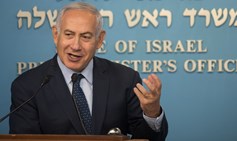
The Illusion of Political Stability
Written By: Prof. Ofer Kenig
Despite a solid decade with the same prime minister, other cabinet posts have switched hands at alarming rates.
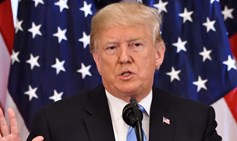
Elections, Security and the Next Government
Written By: Prof. Tamar Hermann, Prof. Ephraim Yaar
The majority of Israelis think that Trump’s decision to withdraw from Syria harms Israel’s security and want a right or center-right government. Read more in the latest Peace Index.

Primary Concern
Written By: Prof. Gideon Rahat
As Israeli political parties begin to formulate their lists of candidates for the upcoming election, Tipping Point hosts Prof. Gideon Rahat, (Israel Democracy Institute), and Dr. Emmanuel Navon (Kohelet Policy Forum) for a conversation on the pros and cons of the primary system.
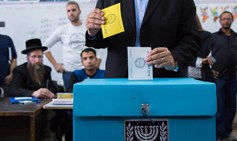
Israeli Politics Fractured: The System Needs Fixing
Written By: Prof. Gideon Rahat
It is commonly accepted that in order to defeat Netanyahu, the political parties in the center and on the Left must unite and present a single and clear alternative. However, under the current system, this claim is simply not true.
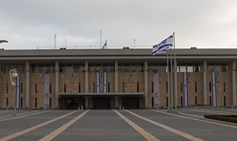
Multi-Party System in Israeli Politics
Written By: Prof. Gideon Rahat
How will yesterday's announcement impact the elections? Will Bennet and Shaked take votes from the right and will their gamble pay off? Listen to Prof. Gideon Rahat talk to The Israel Project on the fragmentation of the Israeli political system.
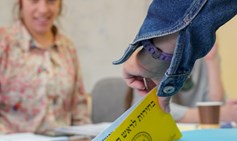
Local Government and Local Elections: Time to Move Away from Centralized Thinking
Written By: Prof. Gideon Rahat
Israel’s system of local elections has been in place since the 1970s - but is it optimal? Prof. Gideon Rahat proposes reform to enhance the compatibility of the system to the characteristics and needs of different localities.

The Municipal Elections 2018: Digital Resilience
Written By: Dr. Tehilla Shwartz Altshuler, Dr. Guy Lurie
The digital domain has developed into something of a wild west for election campaigning in recent years. While there are strict laws governing the press, radio, and television, there are almost no restrictions on online campaigning, such as on the forms of advertising permitted, the use of personal data, and advertising budgets. This lack of regulation has already been shown to potentially affect election results, and may lead to the misuse of information on residents, routinely collected by the municipality as part of its function by those in positions of power in local government.
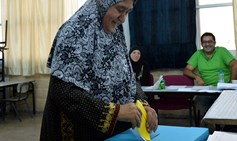
Why Local Elections Matter
Written By: Yohanan Plesner
"While Israeli national politics get most of the coverage, it is the local level that in many cases has the greatest impact on Israeli lives." Read Yohanan Plesner's op-ed on the upcoming municipal elections and why electoral reform is required, both on the local and national level.

America: Land of Endless Voting Opportunities?
Written By: Prof. Ofer Kenig
Dr. Ofer Kenig discusses the multiple ways in which the United States has facilitated the voting process in order to improve voter turnout, and suggests that Israel adopt a number of these innovations. This op-ed originally appeared in the Jerusalem Post.

No Way to Run a Democracy
Written By: Yohanan Plesner
IDI President Yohanan Plesner argues that electoral reform will not suffice to fix the short-term-ism that is destroying Israel's capacity for long-term planning and policy execution; reform of the internal processes of the parties themselves is required. This op-ed first appeared in the Jerusalem Report.

Should Israel Lower the Voting Age to 17?
On March 20, the Ministerial Committee on Legislation will discuss legislation calling to lower the voting age in Israel from 18 to 17. Dr. Ofer Kenig, a researcher in IDI's Political Reform project, explains the the implications.

The Israel Democracy Institute to Knesset Ministers: "Support Bill to Shorten Time Allotted For Forming A Government"
Ahead of today's meeting of the Ministerial Committee on Legislation, the Israel Democracy Institute (IDI) called for supporting a bill that will shorten the length of time allotted to form a governmnet after an election.

Campaign Financing in Israel
Written By: Dr. Assaf Shapira
A discussion of the principal issues pertaining to campaign financing in Israel, written before the Knesset elections of 2015.

Israeli Democracy Institute to Ministers: Support the Amendment to the Propaganda for Elections Law
Policy statement: "The current law from 1959 does not jibe in the current media and political reality of the 21st century and causes discrimination between different forms of media and political forces."
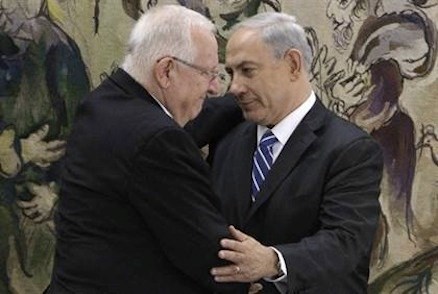
The 2015 Elections and Israeli Governance
Written By: Yohanan Plesner
In a Jerusalem Post op-ed, Yohanan Plesner notes that the 2015 Knesset election demonstrates that structural changes matter, and argues that further stability can be fostered by automatically making the head of the largest party prime minister.

Israel's Central Elections Committee: Political Cabal or Independent Agency?
Written By: Dr. Dana Blander
IDI Researcher Dr. Dana Blander discusses the role of Israel's Central Election Committee and asserts that change is needed in its structure, composition, and working methods.

The Electoral Threshold, Wasted Votes, and Proportionality
Written By: Prof. Ofer Kenig
In the upcoming elections, the electoral threshold will be 3.25%, a big leap from the last elections. Will this higher hurdle deter voters from supporting small parties? Will it reduce the share of wasted votes? What impact will it have on the proportional nature of the electoral system?

23 Knesset Seats is Not a Victory
Written By: Yehoshua Oz
In an op-ed in the Jerusalem Post, Yehoshua Oz, IDI's Director of International Communications, argues that pundits eager to crown a victor in the 2015 elections have lost sight of the fact that winning one-fifth of the Knesset seats is no victory.
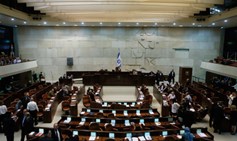
How to Prevent the Recurrence of Early Knesset Elections
Written By: Yohanan Plesner
IDI President Yohanan Plesner recommends a change of approach and some practical steps for changing the reality in which the Israeli public repeatedly goes to the polls to elect a new Knesset before the previous Knesset has finished its term.

Democracy: The Key Election Issue
Written By: Prof. Mordechai Kremnitzer
In an op-ed in Maariv, IDI Vice President Prof. Mordechai Kremnitzer calls for an election campaign that focuses not only on foreign policy and Israel's social gap, but on the nature of Israeli identity and the value of Israeli democracy itself.

Basic Law: Referendum—Changing the Rules of the Game of Israeli Democracy
Written By: Dr. Dana Blander
Dr. Dana Blander draws on the findings of Israeli public opinion polls and explores some of the ramifications of the new Basic Law: Referendum, a law that establishes a system in which every citizen is entitled to participate in historic decisions on withdrawal from territory.
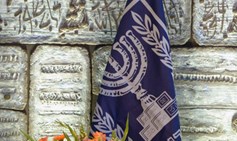
The Israeli Presidency: Unnecessary Institution or Vital Symbol?
Written By: Dr. Dana Blander
As the 2014 presidential election draws near, once again there have been calls to do away with the institution of the presidency. Is the President of Israel an unnecessary position or a vital symbol? IDI researcher Dr. Dana Blander analyzes the two sides of this question.

The Electoral Threshold: Why the Rush?
Written By: Prof. Ofer Kenig
In an op-ed in the Jerusalem Post, Dr. Ofer Kenig warns that while there is nothing wrong with a moderate increase in Israel's electoral threshold, increasing it from 2% to 3.25% in a single step is problematic.

On the Decline in Voter Participation in Municipal Elections in Israel
Written By: Dr. Assaf Shapira
Why is voter participation in local elections in Israel so low? Assaf Shapira explains the reasons behind this phenomenon, discusses its implications, and offers possible remedies.
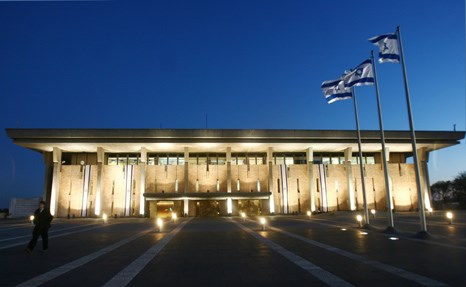
The Governance Bill: A Status Update
Written By: Prof. Gideon Rahat
An update on the status of the proposed Governance Bill and how it aligns with the recommendations of IDI researchers, which was written after IDI experts participated in Knesset committee deliberations.

The Governance Bill: Pros and Cons
Written By: Dr. Arye Carmon, Prof. Gideon Rahat, Prof. Ofer Kenig, Reut Itzkovitch Malka
A video in which IDI researchers discuss some of the pros and cons of the Governance Bill being considered by the Knesset.

Israel's Political Parties: Strengthen the Party, not the Cult of Personality
Written By: Prof. Gideon Rahat
Prof. Gideon Rahat, Director of Research of IDI's Political Reform project, recommends several changes that can help strengthen Israel's political parties and restore them to reasonable performance.

Fixing our Broken System
Written By: Dr. Arye Carmon
The Israeli public is increasingly demanding a more effective system of government. In this op-ed from Israel Hayom (February 2, 2012), IDI Former President and Founder Dr. Arye Carmon asserts that reforming the system of government is the only answer to stabilizing the executive so that a party that has been voted into power can actually govern, and points to two types of necessary change: structural and perceptual.

IDI President Dr. Arye Carmon on the Forum for Political Reform
Written By: Dr. Arye Carmon
In 2009, IDI Former President and Founder Dr. Arye Carmon established The Forum for Political Reform in Israel in response to "the urgent need to generate significant improvement in the capabilities and functioning of the Knesset." On March 28, 2011, Forum Chairman Meir Shamgar, Former President of the Israeli Supreme Court, submitted the Forum's recommendations to the Knesset. In this video interview, Dr. Carmon speaks about the Forum, its key recommendations, and obstacles to political reform in Israel.

Decade in Review: Israeli Governance in Crisis
Written By: Dr. Arye Carmon
IDI Former President and Founder Dr. Arye Carmon, one of Israel's foremost experts on political reform, sums up the Israeli political scene at the end of the first decade of the third millennium in an article that was published in collaboration with Walla!, a popular Israeli website.

IDI President Explores Israel's 'Silent Killer' and Calls for Political Reform
In an article by Dan Pine originally published in J.Weekly on November 5, 2009, IDI President Dr. Arye Carmon describes Israel's internal domestic developments as its greatest existential threats and stresses the urgent need for political reform.

And the Winner is...
According to Israel's Basic Law, following general elections the president appoints a Knesset Member to form the new government. In the wake of the 2009 Israeli general election, Benjamin Netanyahu was chosen – even though he did not lead the largest party. Dr. Dana Blander proposes the establishment of a clear set of rules which would automatically give the leader of the largest party the power to form the incoming government, obviating ambiguity surrounding the selection process of the Prime Minister.

District Elections in Israel: Pro and Con
Written By: Nir Atmor
A broad survey of the various models of district elections that could be adopted in Israel, which includes a comparative international perspective and explores the factors that must be taken into consideration when deciding to adopt such a system in Israel.

Local Authorities: An Issue of National Importance
Written By: Shmulik Nili
Who is addressing the problematic relationship between local and national government in Israel? Is anyone designing a a comprehensive reform program to solve some of the issues that are the result of a malfunctioning system of local governance? How, if at all, does the national media deal with this issue?
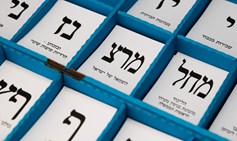
How Could the Rerun Elections have been Avoided?
Written By: Dr. Assaf Shapira
The rerun elections expose a weakness in our system of government and highlight the need to modify the current system for forming a government
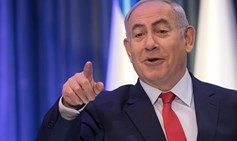
Proper Representation - Let's Play!
As the Knesset celebrates its 69th birthday on Tuesday, Jan. 30, here is a chance to see how you score on knowledge of Israel's parliament. What did Israel's lawmakers do before joining the Knesset? What did they do after leaving? what are the benchmark requirement to becoming an MK? How many are currently serving their first term? Let's play!

